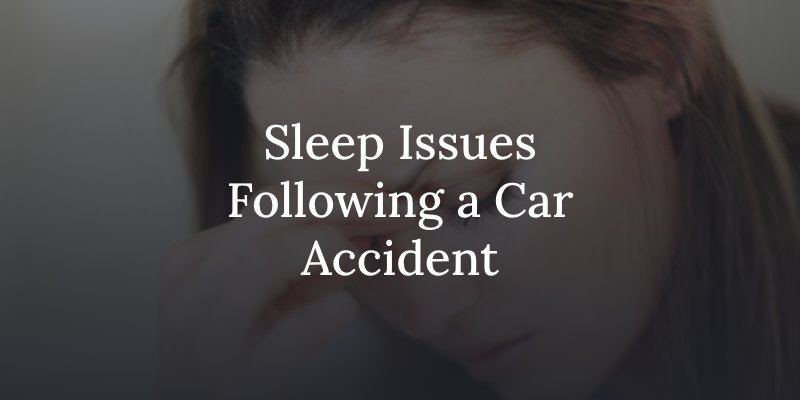Serious car accidents are terrifying experiences, especially when a motorist suffers injuries or sees a loved one with them sustain grave injuries or a fatality as a passenger. During the immediate trauma of the accident, an adrenaline rush occurs as one of the body’s critical self-defense and coping mechanisms. The adrenaline rush may also mask the symptoms of injuries—which sometimes show up later after the stress hormones subside. The delayed symptoms of injuries can present challenges in an injury claim later. Emotional damages, including sleep disturbances, are also challenging to prove in St. Louis car accident claims, yet they are not uncommon after the trauma of an accident.

Common Sleep Problems After a Car Accident
A serious car accident can affect all aspects of the accident victim’s life, with physical, financial, and emotional consequences. These consequences become the accident victim’s “damages” in a car accident claim for compensation. One of the emotional consequences experienced by some car accident victims is sleep problems. Common sleep disturbances following a traumatic car crash include the following;
- Insomnia
- Nightmares
- Sleepwalking
- Restlessness
- Sleeping too much
- Anxiety upon awakening
- Sleep paralysis
Sleep problems after a car accident are a common symptom of post-traumatic stress disorder (PTSD). It’s also a common expression of other emotional disorders that can occur after serious trauma, such as anxiety and depression.
What Are the Effects of Sleep Disorders After an Accident?
Sleep disorders not only cause immediate impacts on quality of life due to fatigue, such as memory problems, lack of energy, lethargy, irritability, and difficulty concentrating but may also have long-term adverse effects on health. The impacts of sleep disturbances on an accident victim’s health could include the following:
- An increased risk of chronic health conditions such as high blood pressure, heart disease, stroke, diabetes, and obesity
- Emotional disorders such as depression and anxiety
- Lowered libido
Studies show that sleep deprivation and other sleep disorders also increase the risk of alcohol use and substance abuse, particularly in those who don’t seek professional treatment.
How Can a Car Accident Victim Prove Sleep Disturbance as Damages In a Car Accident?
It’s always beneficial to seek medical treatment and a full physical examination as soon as possible after a car accident. This ensures that a medical provider identifies and treats medical problems with delayed symptoms as well as emergency injuries. It’s important to see a doctor and describe the problem when sleep disturbances emerge in the days, weeks, and even months after the accident, even if you’ve already had a medical examination. Your doctor may order imaging tests to ensure that the sleep disorder isn’t caused by a missed diagnosis of physical injury, such as a traumatic brain injury. When a doctor rules out a physical problem from the accident, they may recommend that the car accident survivor seek treatment for emotional trauma through a therapist, a sleep study, or a sleep disorder specialist. To recover compensation for car accident damages requires evidence, such as medical bills and receipts for out-of-pocket expenses. Treatment for sleep disturbances brings critical evidence for a compensation claim against the at-fault party’s insurance or through a lawsuit. This evidence demonstrates that the car accident victim experienced physical, financial, and emotional damages from the accident—all compensatory damages in a car accident claim.

